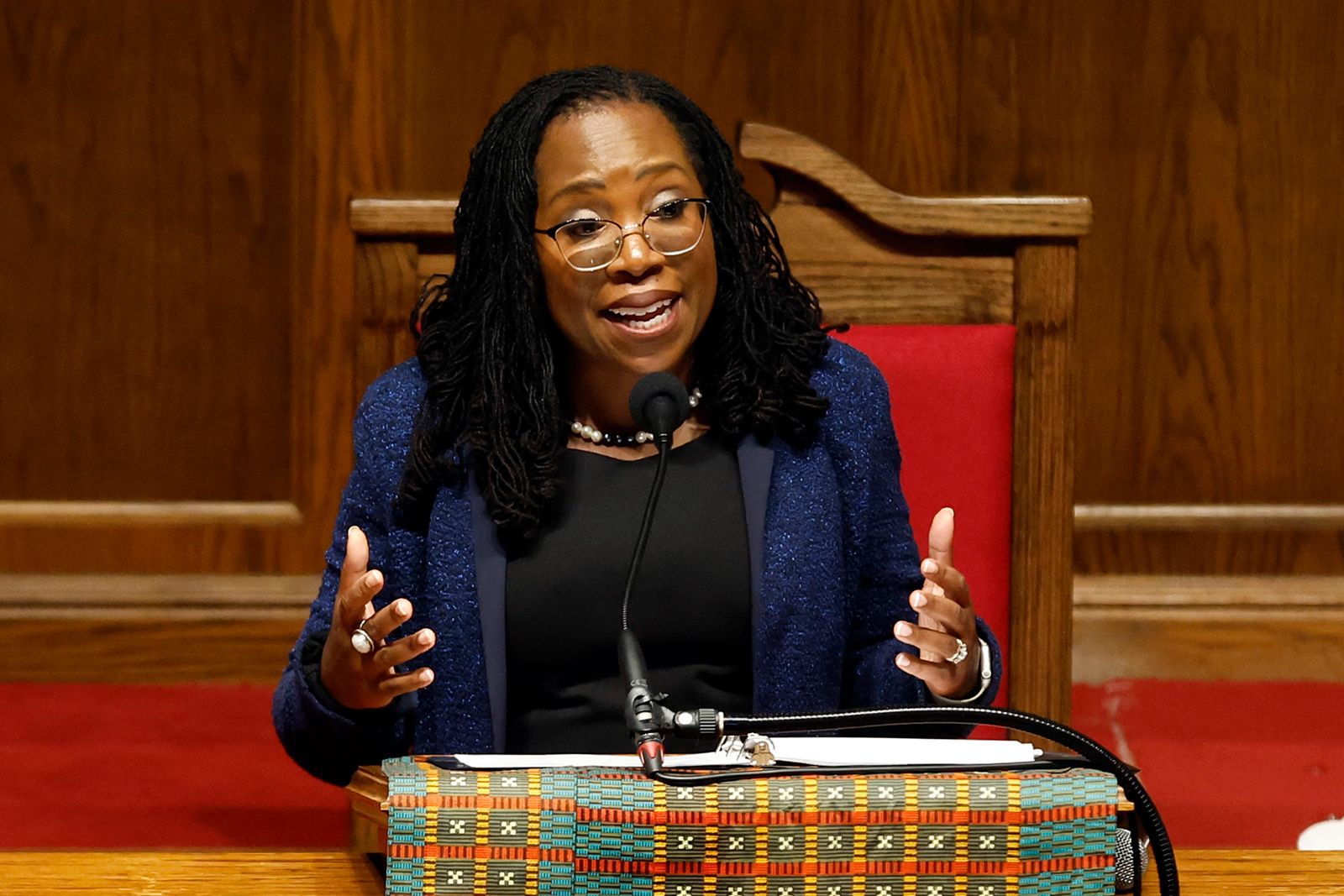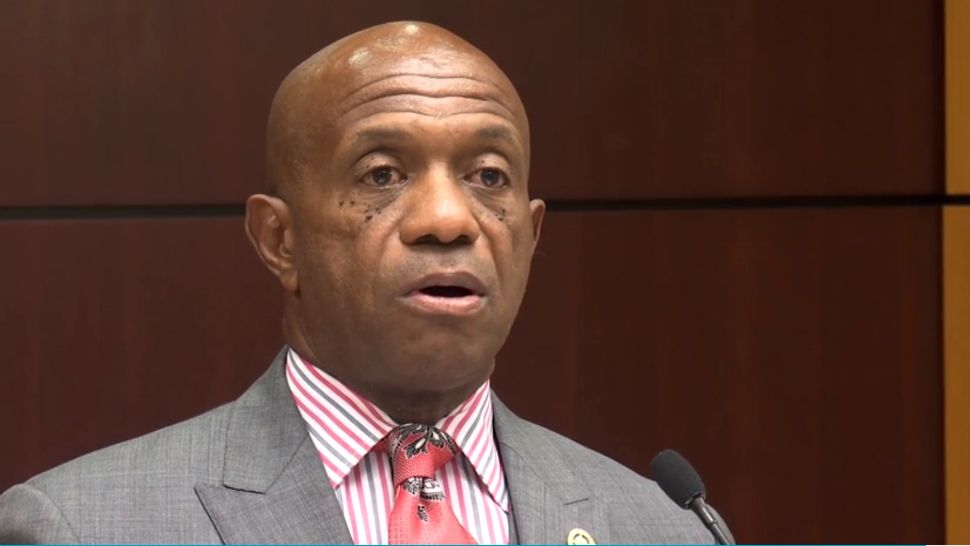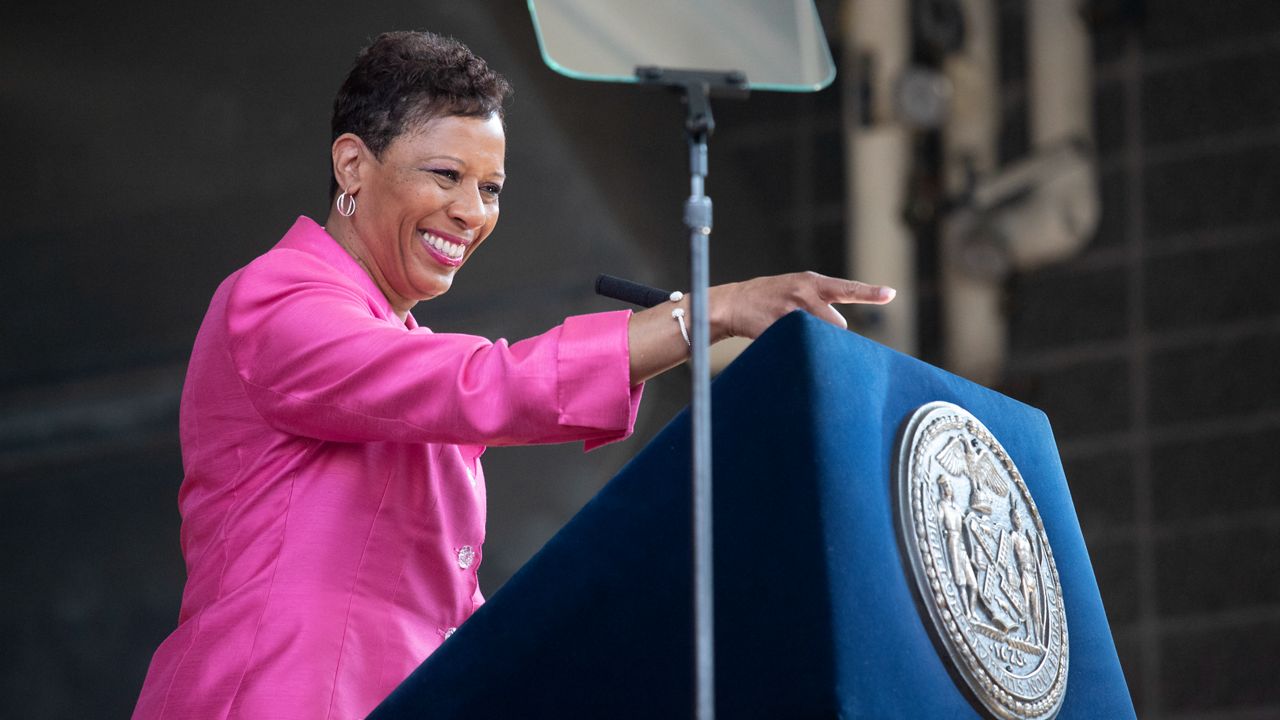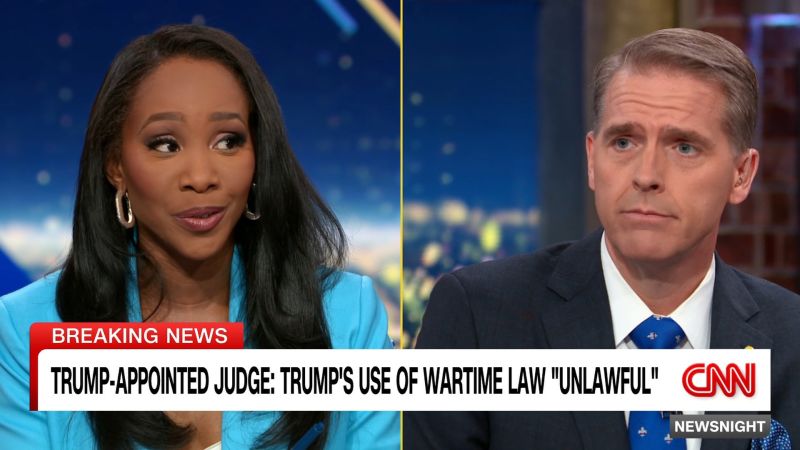- BlackVoter.Org
- Posts
- BlackVoter.Org
BlackVoter.Org


In a powerful address at a legal conference in Puerto Rico, Supreme Court Justice Ketanji Brown Jackson voiced her concerns about what she characterizes as "relentless attacks" on judges, primarily referencing President Trump’s controversial rhetoric. Though she refrained from naming him directly, her message was clear: such language poses a significant threat to American democracy and undermines the rule of law.
Jackson highlighted that these attacks, including calls for impeachment of judges and executive actions against legal representatives, are not mere distractions but deliberate intimidations aimed at silencing those in the judiciary. As Trump continues to rally against the legal system, claiming it obstructs his presidency, Jackson insists on the importance of protecting judicial independence.
Her remarks echo a broader call from the judicial community, including Chief Justice John Roberts, emphasizing the necessity of respecting judicial decisions, no matter the political disagreements.

Discover the captivating collaboration between Keisha N. Blain and Jemar Tisby as they unveil the ‘Sinners’ Movie Syllabus! Inspired by the highly anticipated 2025 film, this educational resource dives deep into themes of morality and redemption.
It’s not just a list of films; it’s an invitation to explore the complex narratives surrounding sin and humanity through cinema. Perfect for film enthusiasts and educators alike, each selection sparks insightful discussions and deeper understanding.
Join Keisha and Jemar on this cinematic journey that challenges perceptions and ignites thoughtful dialogue.

Gif by onyxcollective on Giphy

A new study highlights the overwhelming influence of political identity on Americans' social preferences, suggesting that partisanship now trumps traditional identifiers like race, religion, or class in shaping interpersonal attitudes. Conducted with a diverse sample of 1,330 Americans, researchers found that individuals were overwhelmingly favorably inclined toward profiles that matched their political affiliation, while displaying significant dislike for those from opposing parties.
Even individuals with “cross-cutting” identities—those who don’t fit neatly into political stereotypes—showed no reduction in polarization. While abstract views reflected heightened bias, behavioral measures indicated that people might still be open to friendship with political opponents.
The research underscores that America’s social divides are driven primarily by political identity, raising important questions about how this polarization manifests in everyday life and suggesting a need for further exploration into how social contexts might influence political division.

Mecklenburg County Sheriff Garry McFadden voiced strong concerns over a newly passed North Carolina House bill that aims to enhance cooperation between local law enforcement and federal immigration authorities, specifically ICE. He argues that the bill, while designed to tighten communication and compliance, fails to address critical issues in the transfer of detainees.
Sheriff McFadden contends that the current legal framework necessitates a judicial writ for transferring undocumented individuals facing state charges, and without this, vital cooperation remains elusive. Meanwhile, ICE's criticisms of his agency's release of suspects further complicate the situation.
Despite the North Carolina Sheriffs' Association supporting the bill, community advocates warn it may perpetuate negative narratives about immigrants. Sheriff McFadden emphasizes his commitment to serving all community members with dignity and transparency amidst the political climate surrounding immigration enforcement.

In a thought-provoking segment, CNN’s Van Jones engages with a diverse group of Black Trump supporters in South Carolina, spotlighting their motivations for voting for and continuing to support former President Donald Trump. The candid conversations reveal the interplay of personal beliefs, economic considerations, and community values at play.
As these supporters share their unique perspectives, the dialogue challenges stereotypes and showcases the complexity of political identity among African Americans. Jones's insightful interactions provide a rare glimpse into a segment of the voter base that often goes unheard, emphasizing the multifaceted nature of political allegiance in America.
Tune in for a compelling exploration of voices that might just reshape your understanding of 21st-century politics.


Adrienne Adams, the first Black woman to lead the New York City Council, has unexpectedly thrown her hat into the mayoral ring, triggering a divided reaction among council members. While some praise her effectiveness and progressive policy initiatives—like maternal health programs and trauma recovery efforts—others feel alienated by her leadership style and decision-making process.
In recent interviews, 18 council members expressed mixed sentiments: progressive allies laud her impact, while moderates criticize her communication and decision-making, citing a schism within the council. Adams has faced challenges, including clashes with the mayor and internal tensions that have led to the removal of several members from key committees.
As she seeks the mayor's office, the question remains whether her controversial approach and the support she has garnered will be enough to unite her divided council and bolster her candidacy.

In a heated exchange, CNN's Abby Phillip takes on Scott Jennings regarding who holds the power to declare if the U.S.
is at war. This debate emerges following a controversial ruling from a Trump-appointed judge who claims the president's use of the Alien Enemies Act over deportations is an overreach of power.
Jennings argues that the ongoing situation at the border constitutes a war, justifying the president's actions. Phillip counters, emphasizing that such decisions should rest with Congress, not the president alone.
This clash highlights ongoing questions about authority and the interpretation of laws in times of crisis, underlining the complexity of America's legal landscape in the age of immigration debates.